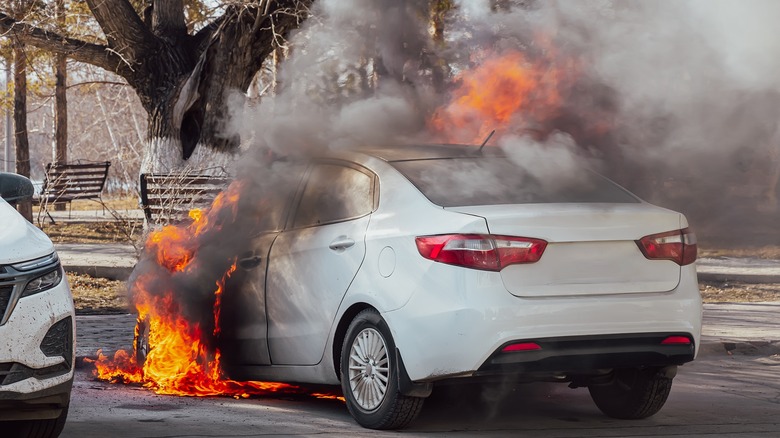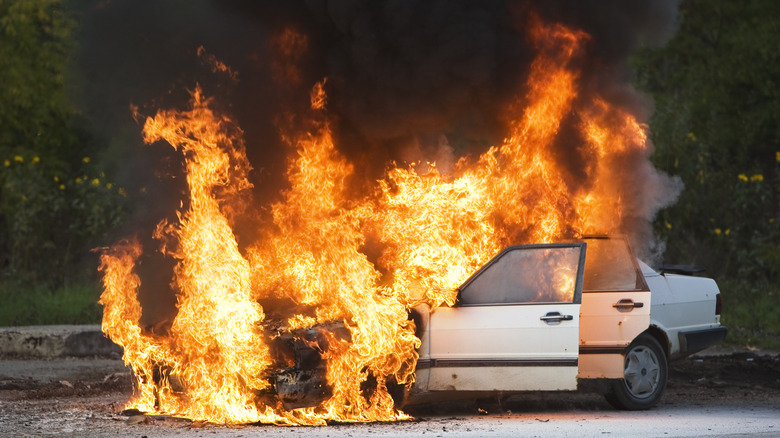
hodim/Shutterstock
By Rob Rich/
Engine oil (or motor oil, whichever term you prefer to use) is an essential substance when it comes to keeping an engine running smoothly. Your engine’s oil will start to run down over time, however, and will eventually need to be replaced with a fresh batch.
Thing is, there are a lot of steps to replacing an engine’s oil (and maintaining the machinery). Sometimes things can go wrong, or steps may be forgotten in the process. Engine components can also get worn out. Whatever the cause may be, there’s a much less than zero chance that, at some point in a vehicle’s life, engine oil may end up getting spilled on the engine or start leaking.
Oil leaks aren’t a good thing on the best of days because they can result in the lifeblood (i.e. very important lubricant) of the engine running low much faster than normal — and running an engine with old, low, or no oil is a very bad idea. But beyond the longer term risks, having a bunch of combustible liquid running rampant across the surface of an engine could also be a potential fire hazard, right? In the simplest terms, yes, as noted by Valvoine leaking or spilled engine oil can start a fire if it gets hot enough. The thing is, it’s kind of a Schrödinger’s fire hazard rather than a guaranteed catastrophe.
Is there a risk for fire or not?

Imantsu/Getty Images
The temperatures required to get engine oil to light up are pretty extreme – over 300 degrees Fahrenheit – so while you absolutely should clean up any spills or leaks you find you don’t need to worry about a few drips catching fire on a hot day. Oil getting into or onto parts of the engine that it’s not supposed to is another matter entirely, however.
Certain parts of an engine (for example, the exhaust manifold) can become hot enough to ignite errant oil. In fact, leaks that would sometimes result in oil ending up on the exhaust manifold, is precisely why General Motors recalled hundreds of thousands of vehicles in 2015, as The Associated Press reported. That was actually the third time it recalled the affected vehicles after drivers began reporting engine fires in 2007.
In the event that you do find oil in your engine, whether it’s from a leak or a spill, it’s best to err on the side of caution and clean it up quickly using a citrus- or water-based degreaser before rinsing it out, because petroleum-based fluids may eat away at more sensitive engine parts. Do not attempt to clean out the oil using only water, because it’s not going to have much of an effect outside of making the engine compartment damp.